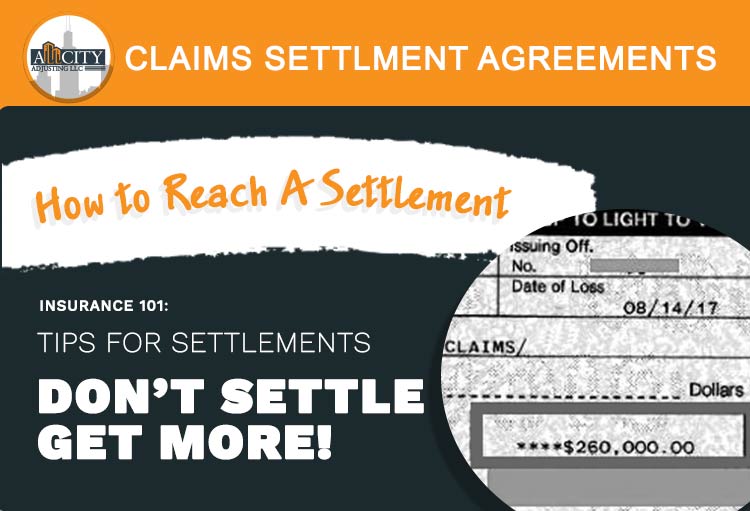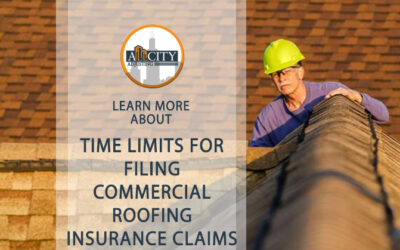Written by Andy Gurczak
June 14, 2021

Claim Settlement: Knowledge is Power
What you need to know about how to reach an insurance claim settlement
Filing a claim might be one of the simpler steps when dealing with loss or damage. However, reaching satisfactory claim settlement could result a bit more complicated.
Most of the time, there will be negotiations with the insurance company along with an investigation of your claims. Despite all of this process taking place insurance companies may still try to minimize your claim. In that case, knowing how to proceed is extremely important.
As the policyholder, you’re entitled to a chance at compensation to help with your medical expenses, emotional trauma, and other damages. Here are some of the proven steps to help you achieve a successful insurance fire claim settlement.
Collecting information begins the process and increases the possibility of maximizing your claim settlement
First and foremost, gathering information and evidence about your accident is crucial. Take pictures of the scene and damage as soon as possible. Equally important, is to keep copies of all paperwork. This could include police reports, medical records, witness statements, etc. Proper documentation can make or break a case.
When you file your claim can affect your claim settlement
Believe it or not, filing your claim too early or too late can affect the results of your claim settlement
Before you file, it’s important to make sure that filing a claim is worth it. Your insurance premium increases the same amount regardless if it’s a small claim or a big loss. Assess damages before filing. In fact, consult a professional if you can.
However, know that each state has its own statute of limitations in order to prevent you from waiting too long to file your claim. Once you’ve collected evidence and you know the full extent of your damages, it’s time to file your claim.
Negotiate your claim settlement
Keep in mind that insurance adjusters do not want to give you your full compensation amount. For this reason, it’s important you know the way to proceed in order to receive the fairest compensation for your damages. Check out our article on how to negotiate a claim settlement.
The insurance adjuster will do all they can to refute your claims. They may reference areas of your police report or their perceived estimates. It’s important not to be angry and lash out, but instead respond with well-informed facts that support your case. If they deny your claim without an understandable reason, you might want to get an insurance professional, like a public adjuster.
Be patient throughout the negotiation! Insurance adjusters want you to discourage you and get you to settle for less than what is reasonable for your damages; stand your ground. There’s no deadline for the negotiation process. However, after a few offers and counteroffers between you and the insurance adjuster, hopefully both reach a settlement that is fair.
Remember, public adjusters are here to help.
Tips that can help with your fire claim settlement negotiations:
- Be sure you take numerous pictures of your damages.
- Note any calls between you and your insurer. Include the date, time, name and title of anyone involved in the conversation.
- Describe the details, the outcome, and anything that requires follow up.
- Save invoices and receipts for any claim-related expenses you incur — whether for boardup/mitigation work, additional living expenses, etc.
- Don’t be shy about asking your insurer to provide an advance on your settlement or reimburse your costs as you incur them.
Head to court if you can’t negotiate your claim settlement
If your negotiation with the insurance adjuster goes nowhere, and your public adjuster is unable to help, you may pursue your fire claim settlement in court.
Depending on the size of the loss, you may proceed to “small claims court”. This is as long as the amount of damages doesn’t exceed your state’s limit. You aren’t required to have legal representation in “small claim’s court”, but it sure could be helpful.
If your claim needs a larger compensation, you will need to take your case to civil court. In that case, it is highly advisable that you hire an attorney that understands and has experience working with insurance cases. This is especially important, since so much compensation is at stake.
In civil court, a judge will decide the amount you are due, and the insurance adjuster will have to pay that sum. However, if you are working with a public adjuster, it is very unlikely a dispute might escalate to this point.
The following are important guidelines to make sure your rights and interests are protected while negotiating your fire damage insurance claim.
When you report your loss, make sure you can prove you’ve performed your duties as required by your homeowners insurance policy.
- First, take reasonable steps to mitigate additional damage.
- Secondly, make sure you contact the authorities if you think there was a crime.
- Third, secure your property against vandalism or theft.
- Fourth, promptly inform your insurer about the loss.
- Fifth, check your policy to fully understand what’s covered and what isn’t
Take charge of your claim settlement and hire a public adjuster
One of the hardest things to do after a house fire is to manage your insurance claim. It takes time, hands-on involvement, and a level of expertise few possess. Furthermore, policy interpretation, loss assessment, personal property valuation, contract negotiations, and construction plans and estimates, are just some of the skills necessary in every insurance claim.
When you show your insurer that you are able to manage your insurance claim effectively, you also establish that you are not a target for underpayment. Believe it or not, recognizing when you need a public adjuster is a way that works for you is a proactive claim management measure.
A Public adjuster will:
- Abide with all the requirements in your homeowners insurance policy.
- Solicit or provide independent bids and help you choose the contractor that will do the best work, not just submit the lowest bid.
- Create a personal property inventory for you.
- Substantiate what needs replacement vs. transportation, cleaning, repairing, storing, etc.
- Track claim-related expenses.
- Prove the full value of your damages.
- Negotiate a full and fair settlement.
Factors that determine the claim settlement you get
Type of policy
1. Replacement Cost and Actual Cash Value
Replacement cost policies provide you with the dollar amount needed to replace damaged items with one of similar kind and quality. This is without deducting for depreciation (the decrease in value due to age, wear and tear, and other factors).
Actual cash value policies pay the amount needed to replace the item minus depreciation. For instance, the fire in your home damaged your five-year-old computer. A replacement cost policy will replace the old computer with a new one. If you had an actual cash value policy, the company would pay only a part of the cost of a computer given it’s use and now it’s worth less than the original cost.
2. Extended and Guaranteed Replacement Cost:
If your home is a total loss, a typical homeowners policy will pay to replace it up to the limits of the policy. If the value of your insurance policy has kept up with increases in local building costs, building a similar home for the amount within the policy limits is possible.
With an extended replacement cost policy your insurer will pay a certain percentage over the limit to rebuild your home in case the building costs go up unexpectedly. Usually, it’s about a 20 percent extension, depending on the insurer. Some insurance companies guarantee a replacement cost policy that pays whatever it costs to rebuild your home as it was before the disaster. However, neither type of policy covers more expensive materials than the one originally used.
Mobile Homes:
If you own a mobile home, you may have a stated amount policy. The maximum amount you receive for your loss is the sum you agreed to from the beginning. If this is the case, update your policy annually to make sure that the amount will cover the cost of replacing your mobile home. Check with local mobile home sellers to find out what a similar could cost.
Policy limits
Insurance policies usually provide appropriate coverage because they include an inflation-guard clause to keep up with increasing local building costs. If you have replacement cost coverage, your insurance company will pay the full cost of repairing or replacing the damaged structure with a similar building.
Often recommended is that your home insurance covers 100 percent of replacement cost. This way, you have enough money to rebuild if your home is totally destroyed. However, if you have made significant improvements on your house, underinsurance could be a problem. Remember, always inform your insurance company for significant home renovations.
Solicit temporary living expenses in your claim settlement
If due to the damage you can’t live in your home, your insurance company can advance a payment to pay for reasonable additional living expenses. Usually, the amount given is equal to 20 percent of the insurance on your property. This payment is additional to the money for repairs or rebuilding. However, some insurance companies pay more than 20 percent. On the other hand, some insurers limit additional living expenses for a certain period of time.
Additional living expenses often cover eating out, rent, utility installation costs in a temporary residence, and transportation costs. Sometimes additional living expenses are also known as loss of use.
Rebuilding and making repairs
After a total loss estimate, you have several options.
- Rebuilding your new home on the same lot.
- Selling the land and building or buying a house in a different place, even another state. However, this could vary depending on the state’s laws.
- Deciding that you would rather rent
If you decide not to rebuild, the settlement amount depends on state law, what the courts have said about this matter and the kind of policy you have. Find out from your insurance agent or company representative what is the basis for the settlement amount. Concerning repairs, if you downgrade, for example, replace an expensive wood floor with one using a cheaper product, you will not receive the difference in cash.
The compliance with current building codes affects your claim settlement
Building codes are minimum standards of construction, set for any type of structure. For example, in hurricane prone areas, structures must withstand high winds. If your property is not in compliance with current local building codes, you may have to rebuild the damaged sections according to current codes.
Sometimes, complying with the code can mean a change in design or building materials that may cost more. Homeowners insurance policies almost never pay for these extra costs. However, insurance companies often offer endorsements that pay a set amount for such changes. Ask your insurance agent about this clause.
The payment process
Natural disasters can make enormous demands on insurance company personnel. Sometimes after a major natural disaster, local governments demand insurance company adjusters to assist everyone who has filed a claim before a certain date. Due to the large amount of claims, the deadline may force adjusters to make a rough first estimate. You can always schedule a second appointment for a more accurate estimate. Insurers often send out first checks that are meant to be advances. If your insurance adjuster offers you settlement on the spot, you can accept. However, know that if you find any further damage, you can simply “reopen” the claim and file for an additional amount.
Most insurance companies require you to fill out a claim within one year from the date of the disaster. Some insurance companies could solicit a proof of loss form. The aforementioned, provides details of your losses and the amount of money you’re claiming. Moreover, it is a legal record.
Furthermore, remember that the choice of repair firms is yours. If your home was appropriately insured, you won’t have to settle for anything less than you had before the disaster. Make sure the contractor is giving you the same quality materials and don’t get permanent repairs done until after the adjuster has approved the price. If you receive bids, show them to the adjuster. Only when the adjuster agrees on a bid, can the repair process begin. In fact, an adjuster can negotiate bids with contractors, if necessary. You can also take suggestions from the adjuster about companies they have worked with before.
How you receive the money:
If both your home and contents suffered damage you likely get two separate checks from your insurance company. For mortgages, the check for home repairs is usually made out to you and the mortgage lender. Lenders usually require mention in the homeowners policy and that they receive half of the insurance payment related to the structure. The lender gets equal rights to the insurance check to ensure that the necessary repairs are made to the property in which it has a significant financial interest. For this reason, the mortgage company or bank will have to endorse the check.
Furthermore, you should show the lender your contractor’s bid. In addition, inform how much the contractor wants up front to start the job. Your mortgage company will likely want to inspect the finished job before releasing the funds for payment. However, know that mortgage lenders must release funds that exceed the balance of the mortgage.
In some cases, construction firms want you to sign a direction to pay form that permits your insurance company to pay the firm directly. The firm then bills your insurance company directly and attach the form you signed. Regardless, you should make sure that you’re completely satisfied with the repair work before you sign these types of forms.
Payment for Replacement Policies and Actual Cash Value
If you have the replacement cost policy aforementioned, you usually need to replace the damaged items before your insurance company issues the payout. If you decide not to replace some items, your payment will then turn into actual cash value. Your insurance company does usually allow you several months to replace the items and collect full replacement cost. Find out your deadline before making any decisions. Once your claim has been settled and the repair work is underway, take the time to ask yourself several questions and reflect. For example, was my home adequately insured? Was my insurer fair and helpful? Should I get replacement cost coverage for my property?
Talk to your insurance agent or company representative about possible changes.

Best way to beat the insurance company is to hire AllCity Adjusting
At AllCity Adjusting we help residential and commercial clients alike get the claims support they need. Moreover, we have over 50 years of combined experience helping get our clients the max settlement time and time again. If your claim has been low balled or denied entirely we can help increase your maximum settlement. Call us today for a FREE consultation. Experience the AllCity difference.
Real Support When You Need It!
Related Articles
7 Red Flags That Indicate You Need to Hire a Public Adjuster
If you own property, managing roofing insurance claims might seem tough. Knowing how to quickly deal with roof damage insurance claims from water, weather, fire, or unexpected events is helpful. In this guide, we’ll share useful tips to help you understand and work through roofing insurance claims more easily, aiming for a quicker solution.
Navigating Fire Damage Claims: What Every Property Owner Should Know
If you own property, managing roofing insurance claims might seem tough. Knowing how to quickly deal with roof damage insurance claims from water, weather, fire, or unexpected events is helpful. In this guide, we’ll share useful tips to help you understand and work through roofing insurance claims more easily, aiming for a quicker solution.
The Role of a Public Adjuster in Water Damage Claims
If you own property, managing roofing insurance claims might seem tough. Knowing how to quickly deal with roof damage insurance claims from water, weather, fire, or unexpected events is helpful. In this guide, we’ll share useful tips to help you understand and work through roofing insurance claims more easily, aiming for a quicker solution.
Understanding Water Damage Claims: A Comprehensive Guide for Homeowners
If you own property, managing roofing insurance claims might seem tough. Knowing how to quickly deal with roof damage insurance claims from water, weather, fire, or unexpected events is helpful. In this guide, we’ll share useful tips to help you understand and work through roofing insurance claims more easily, aiming for a quicker solution.
Time Limits for Filing Commercial Roofing Insurance Claims
When floods, storms, or fires destroy roofs, insurance claims can save homeowners. However, property owners must be aware of the commercial roofing insurance claim deadline. We’ll explain this crucial period in this piece to help property owners manage the claims procedure.
The Role of Insurance Adjusters in Commercial Roofing Claims
For commercial property owners, dealing with roofing insurance claims can be complex. This is where a Commercial Public Insurance Adjuster becomes vital. They help property owners who might struggle to understand their insurance policies, especially when it comes to roof damage from water, storms, or fire.
Stay Up to Date With The Latest News & Updates
Don’t Wait – Get More
Get a free 1 hour consultation on your next call. So call today and challenge the insurance company narrative on your policy claim. We can help you with all your public adjuster claims support. Let us help you get more.
Join Our Newsletter
Do you want to learn more about public adjusting. In this newsletter we create helpful tips and hints and you will receive notifications when we post new articles.
Follow Us
Follow us on the following social networks.






Recent Comments